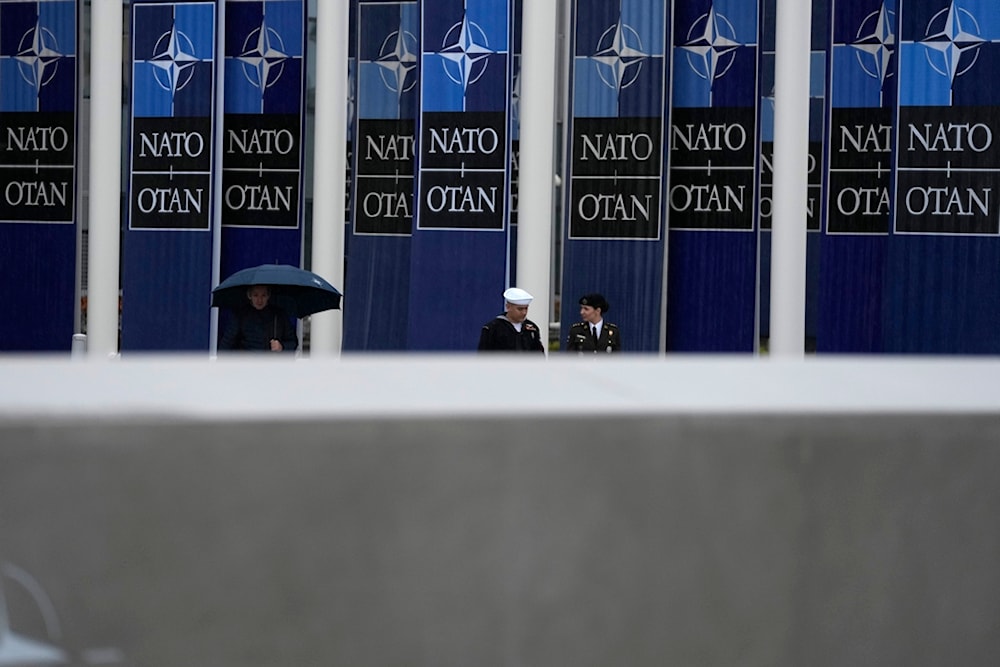NATO allies hesitant on long-term military aid to Ukraine: Bloomberg
This hesitance stems from uncertainties about the battlefield situation and a lack of clarity regarding the specific assistance Kiev may require in the future.
-

Two military personnel walk by NATO banners prior to a wreath-laying ceremony at NATO headquarters in Brussels, Thursday, April 4, 2024 (AP)
Bloomberg reported on Wednesday, citing sources familiar with the matter, that certain NATO member states are reluctant to commit to long-term military support for Ukraine.
This hesitance stems from uncertainties about the battlefield situation and a lack of clarity regarding the specific assistance Kiev may require in the future.
Earlier this month, NATO Secretary General Jens Stoltenberg stated that the alliance should pledge 40 billion euros ($42.9 billion) annually in military assistance to Kiev as a means of demonstrating steadfast support for Ukraine for the foreseeable future.
Certain allies are said to be hesitant to commit to specific figures due to concerns about disclosing the actual amounts of their aid. Others contend that the proposed amount may need adjustments—either increases or decreases—depending on frontline developments, necessitating flexibility in their annual budget planning.
Read more: US will sacrifice Zelensky after exhausting his 'usefulness': SVR
Bloomberg noted that some states fear that if their finance ministries refuse to increase both national defense spending and contributions to Ukraine, their own defense budgets could be reduced.
The report highlighted that the lack of consensus on the level of military support is worsened by Washington and Berlin's reluctance to characterize Ukraine's path to NATO as "irreversible." Instead, they insist on framing the bloc's aid to Kiev as a "bridge to membership."
Read more: Harris pledges $1.5 billion in US aid for Ukraine
Back in May, Bloomberg reported that the European Union agreed on a plan to utilize the income from blocked Russian sovereign assets to boost Ukraine's rehabilitation and military spending.
On June 12, the Group of Seven (G7) leaders have agreed to provide Ukraine with $50 billion by utilizing frozen Russian assets by the end of the year.
On June 20, Russian Foreign Ministry spokesperson Maria Zakharova said that Russia possesses a "wide arsenal" of economic and political countermeasures if the West seizes its sovereign assets, including a tit-for-tat confiscation of Western assets in Russia.
Zakharova highlighted that Russia has a substantial amount of Western assets, including funds and property, under its governance, warning that they could all be subject to seizure as part of the Russian response.
"All of it may be subject to Russian retaliatory policy and retaliatory actions. The arsenal of political and economic countermeasures is wide," she said, without revealing the nature of the possible retaliatory actions.

 3 Min Read
3 Min Read









